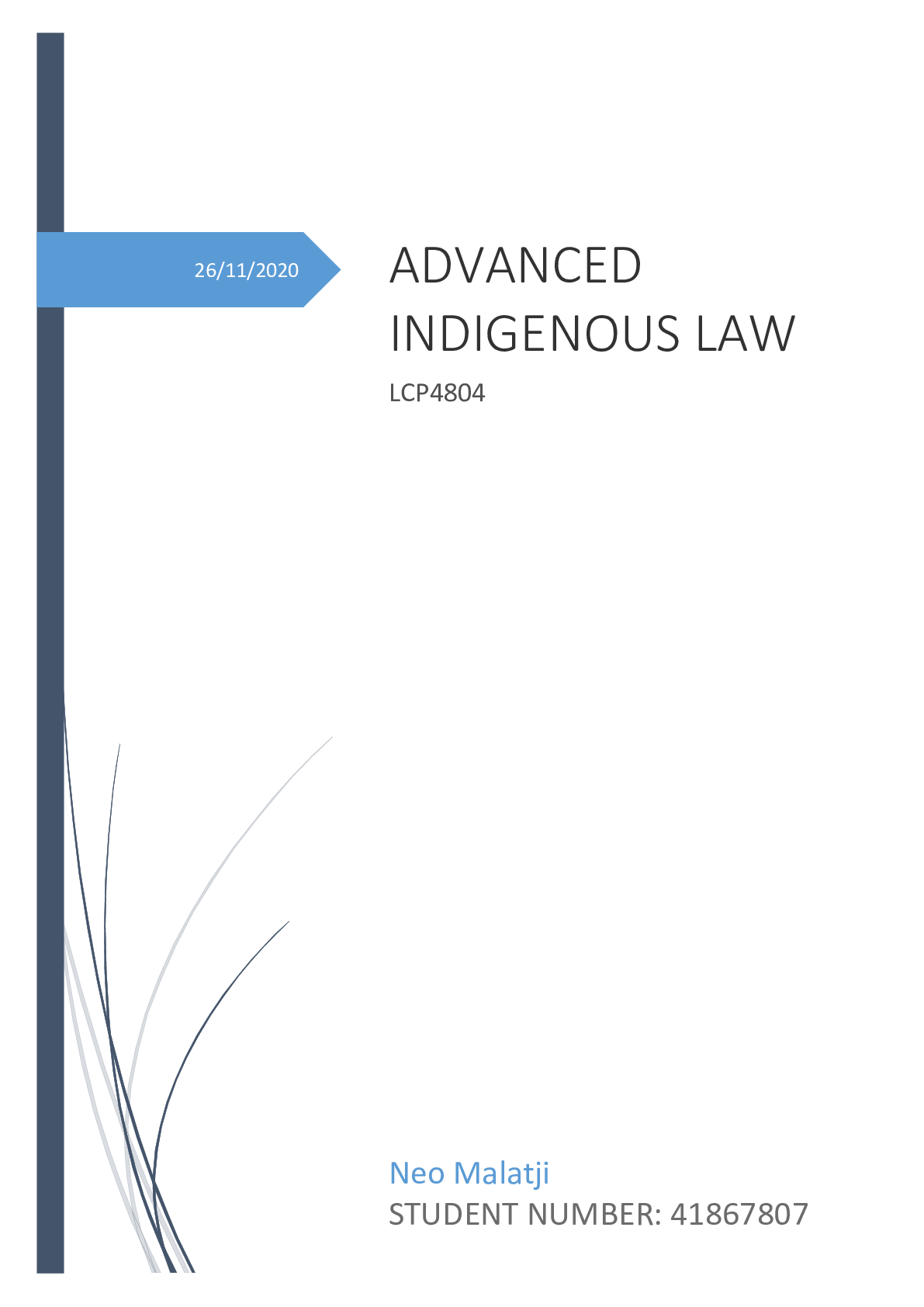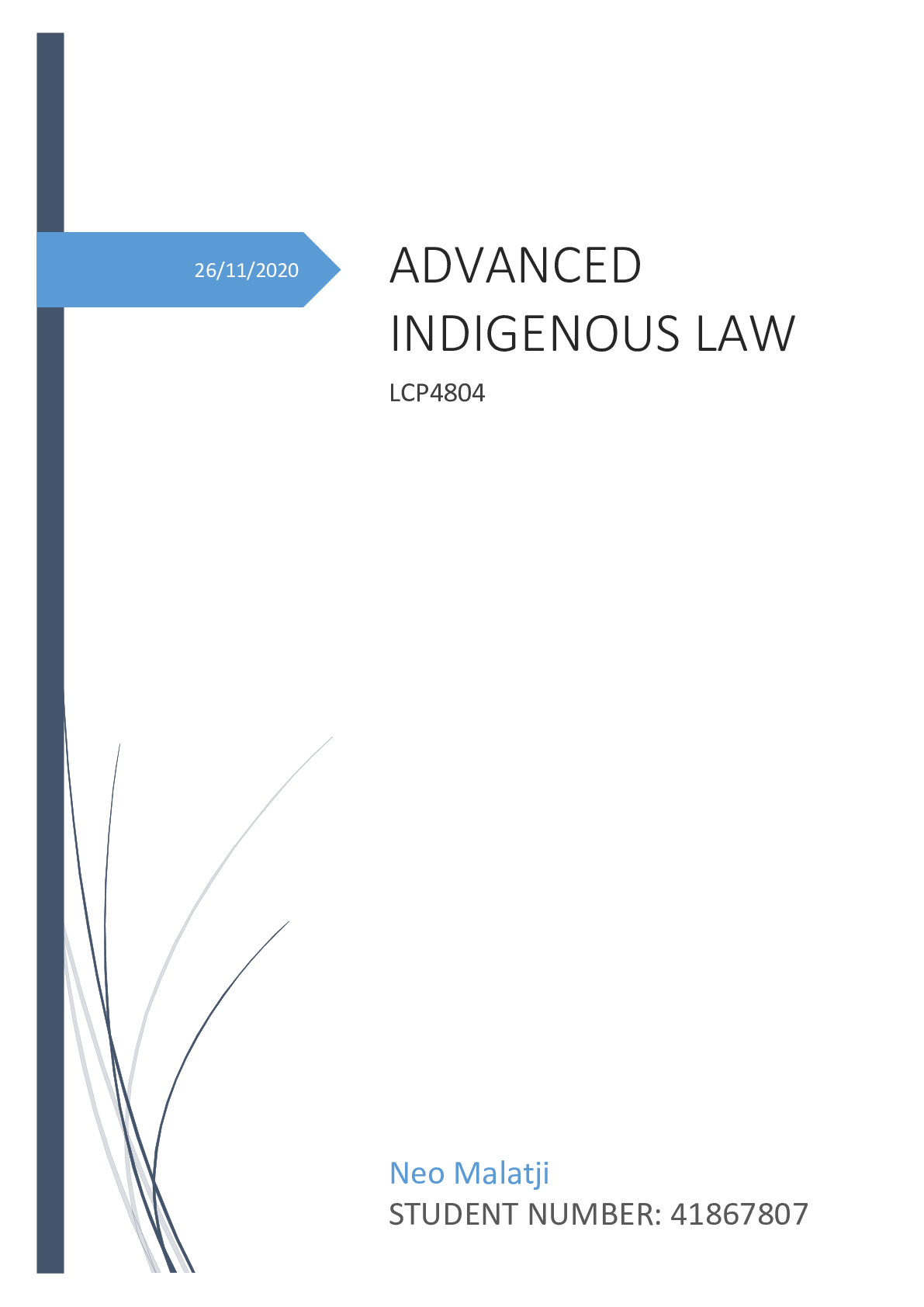ADVANCED INDIGENOUS LAW LCP4804
Course
Philosophy
Subject
Chemistry
Category
Questions and Answers
Pages
13
Uploaded By
ATIPROS
Preview 4 out of 13 Pages


Download all 13 pages for $ 8.00
Reviews (0)
$8.00
